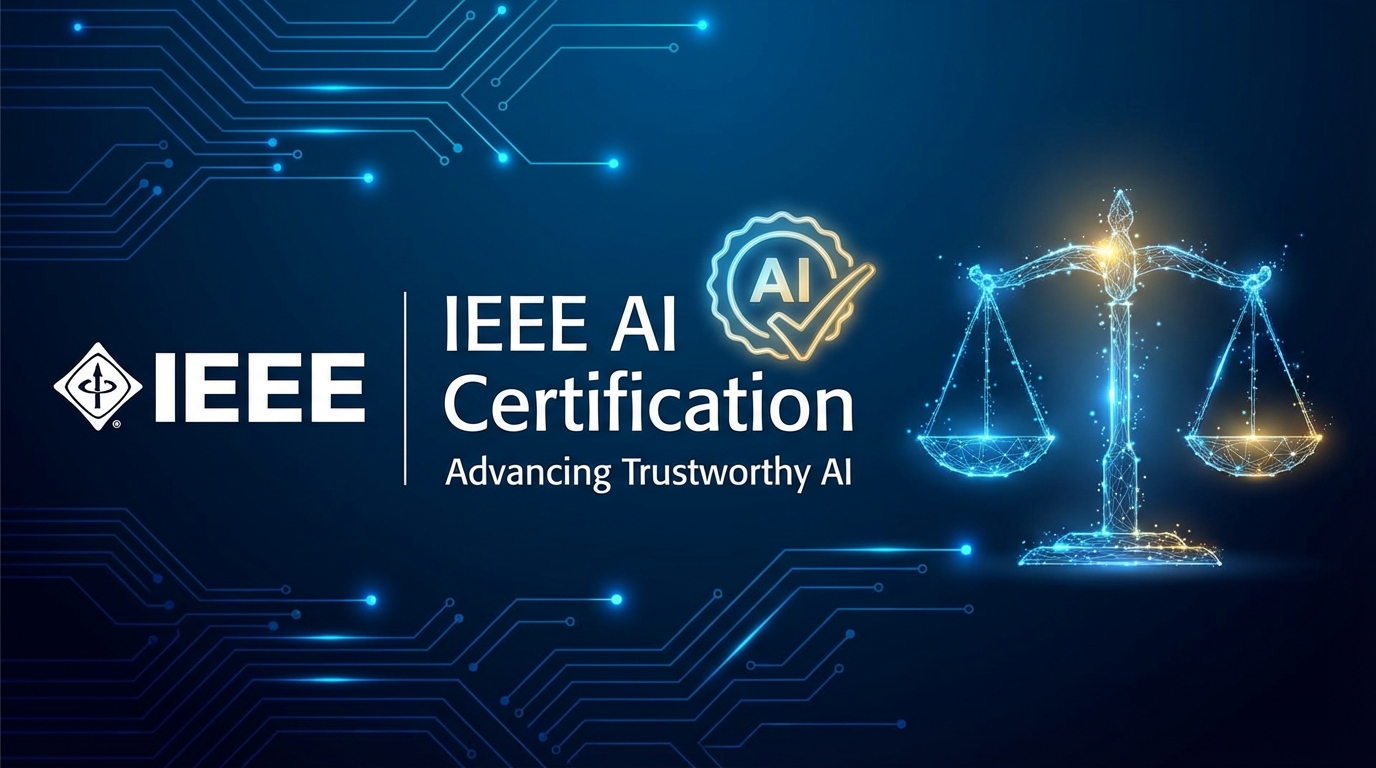IEEE CertifAIEd Program
World-Class Ethics Evaluation and Profiling

With AI becoming a "commodity," the need for certification has never been greater. IEEE CertifAIEd™ provides a rigorous methodology for evaluating systems against ethical risks.
The Certification Process
Stage 1: Enquiry
An authorized assessor (like AI Ethics Assessor) discusses goals, stakeholders, and budget, defining a clear project scope and timeline.
Stage 2: Ethical Profiling
We work to identify the core socio-technical values at risk and establish a unique Risk Profile for your product.
Stage 3: Assessment
The assessor co-ordinates the collection of evidence to prove conformity. This is documented in a formal "Case for Ethics."
Stage 4: Certification
An independent IEEE certifier validates the case. If successful, your organization is granted the IIEEE CertifAIEd™ mark and added to the official registry.